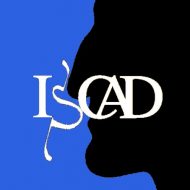International Seminar on Critical Approaches to Dante: 15–16 October 2015
Department of Italian Studies, University of Toronto and the Emilio Goggio Chair in Italian Studies
- In collaboration with
- Istituto di Cultura Italiana di Toronto
- Centre for Medieval Studies, University of Toronto
- Saint Michael’s College, Toronto
- Department of Language Studies, University of Toronto Mississauga
O glorïose stelle, o lume pregno
di gran virtù, dal quale io riconosco
tutto, qual che si sia, il mio ingegno,
con voi nasceva e s’ascondeva vosco
quelli ch’è padre d’ogne mortal vita,
quand’io senti’ di prima l’aere tosco;
Dante Alighieri, Paradiso, XXII, 111–116
750 years … but of what? And for whom? The many initiatives that celebrate Dante around the world in 2015 are, in fact, a glorious paradox. Today we celebrate an anniversary that Dante himself, even though he loved quoting the Gemini as the source of his “ingegno”, would never have taken into consideration, for the simple reason that the celebration of birthdays (unlike anniversaries of death or name days) is a cultural practice that emerged only after his time.
Beyond Dante’s birth and perhaps more than it, then, this anniversary concerns us, Dante’s readers, both past and present. Thus, what one should celebrate are seven and a half centuries (more or less) of readings, both silent and aloud; of commentaries and doubts; of ad hoc hermeneutic categories and imported theories from other fields in order to explain Dante’s work, and to renew its contemporaneity with a modern public. Indeed, no other author and no other work have offered, from the very beginning, a hermeneutic workshop of equal richness: not only have new interpretative theories been tested here, but Dante’s work has also become the shared space in which different critical traditions meet and interact with one another. The variety of the tools of interpretation and modes of reading of Dante’s opus are also a heavy burden, transmitted and augmented by each successive generation, sometimes to the point of making Dante criticism a veritable dark wood of confusion for those readers who approach Dante Studies with the goal of simply understanding the text.
On this anniversary we aim to begin an archaeological critique and discussion of this critical legacy, starting from two fundamental hermeneutic categories of twentieth-century research: “Struttura/Poesia”, an ancient and still influential heritage taken from Croce’s studies on Dante, and “Figura”, from Eric Auerbach’s equally outstanding critical approach.
Contributions (in Italian, English, or French) might focus on one of the following axes:
- The history of these categories in Dante studies and related fields of study and/or disciplines.
- The remote antecedents of these categories in Dante studies (from the early commentators of the Commedia).
- The examination and discussion of the application of these categories to the interpretation of single episodes of the Commedia.
- The examination and discussion of the uses and abuses of these categories.
- The theoretical and methodological discussion of these categories from an interdisciplinary perspective.
Keynote speakers (confirmed)
Prof. Alberto Asor Rosa (Università di Roma “La Sapienza”): Title to be confirmed.
Prof. Brian Stock (University of Toronto): Auerbach’s “Figura” and Ancient Literary Imagination.
Scientific Committee
- Prof. Elisa Brilli (University of Toronto)
- Prof. William Robins (University of Toronto)
- Prof. Justin Steinberg (University of Chicago & Editor of Dante Studies)
Submissions
Submissions should be sent to by July 20, 2015, and should include an abstract (500 words maximum) and the author’s CV (publications included).
Student Scholarships
One scholarship (providing room and board) is offered by Saint Michael’s College to a graduate student (Master or PhD) who wishes to participate in/attend to the conference. Students should send to by August 30, 2015 the following documentation: a cover letter, a CV, a letter of reference.
Nota Bene
There will be no participation fee for the conference.
Please direct all questions/concerns to:
Organizer
Prof. Elisa Brilli (University of Toronto)
Scientific Assistant
Sylvia Gaspari (University of Toronto)
Administrative Assistant
Nina di Trapani (University of Toronto)
